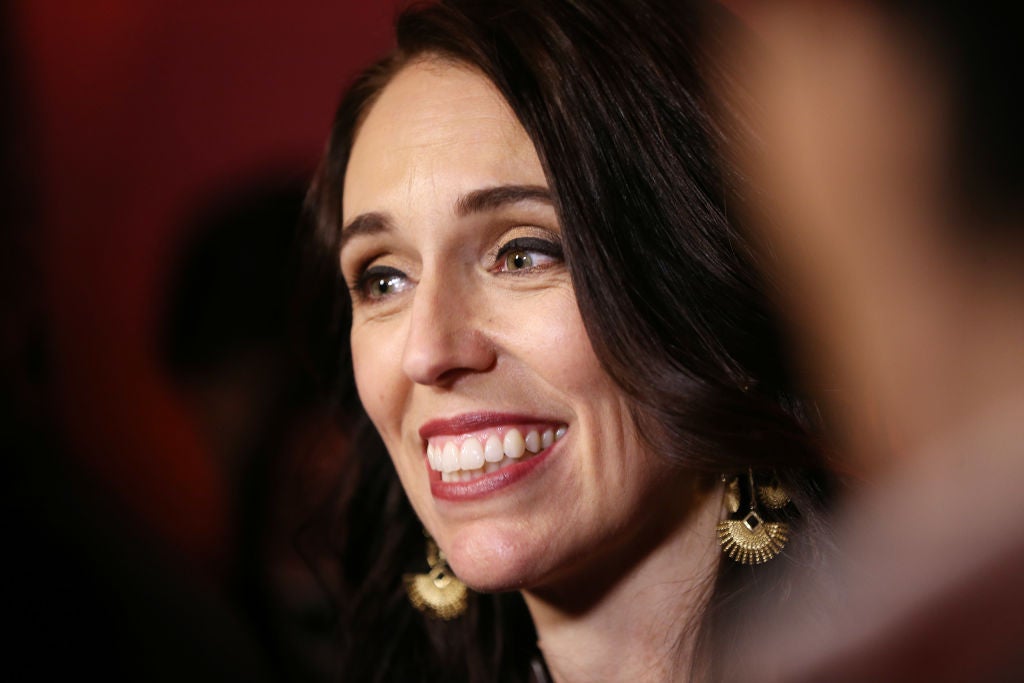What Keir Starmer can learn from Jacinda Ardern
The Labour Party won’t want to steal all of the New Zealand PM’s policies but it could certainly borrow her positive outlook, writes Sean O'Grady


It is tempting for those on the progressive wing of politics to imagine that Jacinda Ardern’s remarkable victory in New Zealand marks a political turning point – not only for her country but the democratic world.
In a sort of domino effect, the tablets of nationalist populism could gradually fall; a Joe Biden victory in the US next, with Donald Trump, the biggest domino gone... then a Conservative Party coup to remove Boris Johnson and – who knows – Jair Bolsonaro, Narendra Modi, Viktor Orban and Recep Tayyip Erdogan following suit. Maybe even Vladimir Putin? Well, it is a little fanciful. More practically there are some immediate lessons for the British Labour Party from the success of its Kiwi counterpart.
First is style. Ardern’s is bright, optimistic, aspirational and illuminated by that trademark smile. Too often left leaders fall into a miserabilist trap, banging on about failure and filing their propaganda with images of kids in poverty or patients on ventilators. That’s not to deny the reality of deprivation and the destitution that many families are falling into, nor the strains on the NHS. It is merely to point out that to catch the attention of the voters you’re better off not depressing them.
Ardern’s campaign was based on a positive image of the future. Even the equalities section of her manifesto was labelled “Rainbow”. She was able to empathise with the families of the Mosque attack victims just as well as Jeremy Corbyn did with the survivors of the Grenfell Tower disaster. Where Ardern differed was in being able to bring sunny optimism into her programme.
Maybe it is no surprise that she worked in Tony Blair’s Downing Street for a while, and picked up some ideas about presentation. For Labour in Britain, campaigns based on modernity and aspiration in the 1960s and 1990s paid great dividends; the more austere, monochrome bleakness of their efforts in the 1950s, 1980s and 2010s mostly yielded more disappointment. Is the temperamentally serious Keir Starmer ready with his sunbeam grin yet?
As for policy substance, all wings of the British Labour Party might find Ardern’s eclectic mix of policies perplexing. That’s because she is more pragmatic and practical than the British party has been used to in its post-Blair iterations, where both “New Labour” and Corbynism became rigid doctrines and intolerant of dissent.
Today, the British left would understandably applaud the pledge to provide “a warm, dry home for every New Zealander”, the commitment to a carbon-free economy by 2030, and the maintenance of a national nuclear-free zone.
Yet it is a mistake to see Ardern merely as a smarter, more charismatic, confident and articulate version of Corbyn. The New Zealand Labour Party is certainly of the left, and has made some bold “woke” pledges, but it also advocates policies which Corbynistas, and indeed Starmerites, might find difficult to accept. For example: a quota on refugees claiming asylum; no nationalisations; no estate duty; no capital gains tax and major support for small private business.
Then again there were plenty of ideas that Starmer could profitably pick up and develop, provided Johnson or Rishi Sunak don’t nick them first. Free apprenticeships; free and healthy school lunches; living wage as a condition for government/public sector contracts; an aged care commissioner; a dementia action plan; and easier ways for women to secure pay equity. Other policies include a stronger student voice in schools and universities; and a referendum on decriminalising cannabis.
Of course, it can easily be objected that New Zealand is already one of the most socially progressive states in the world, and is blessed with many natural resources. What Ardern calls her “team of 5 million” evidently doesn’t suffer from the same vicious culture wars tearing societies apart in the Americas and in Europe. New Zealand might well turn out to be sui generis, a Nordic-style paradise in the sunny Pacific. Yet not so very long ago New Zealand was a far more chauvinistic, socially conservative society than the New Jacindaland of the 2020s. Leftish, vaguely progressive ideas and policies can change countries and win elections, even in today’s world and in the most superficially unlikely of places. Whether they’d work is a very different question. Biden’s turn next, anyway.

Join our commenting forum
Join thought-provoking conversations, follow other Independent readers and see their replies
Comments